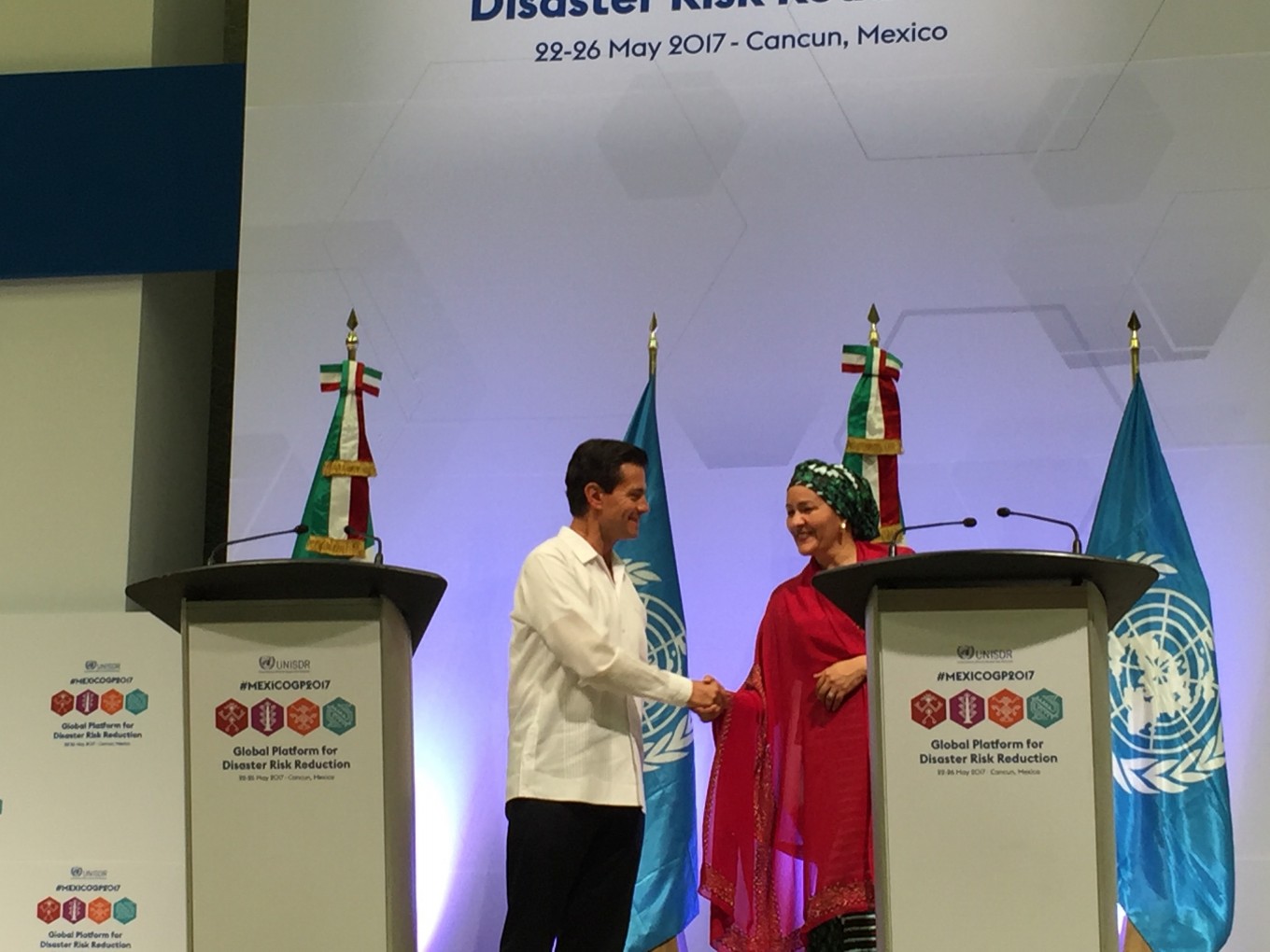Popular Reads
Top Results
Can't find what you're looking for?
View all search resultsPopular Reads
Top Results
Can't find what you're looking for?
View all search resultsWorld leaders highlight disaster risk reduction challenges in communiqué
Change text size
Gift Premium Articles
to Anyone
S
everal world leaders have highlighted challenges faced in disaster situations in a communiqué issued during a United Nations Global Platform for Disaster Risk Reduction event in Cancun, Mexico.
In the communiqué, the leaders—including Mexican President Enrique Peña Nieto, Haitian President Jovenel Moïse and Nepal Deputy Prime Minister Bilamendra Nidhi—acknowledge that direct economic losses attributed to disasters are increasing significantly.
The losses have reached close to US$1.4 trillion over the last decade, according to the communiqué issued on Thursday.
(Read also: Global leaders, civil society address disaster risks in Mexico)
“Losses to countries’ capital stock, including housing, infrastructure, productive assets and livelihoods, and impacts on health and education have had major fiscal implications, hindering economic growth and development,” the statement says.
In some regions, the risk of losing capital stock in disasters may even be growing at a faster rate than the capital being produced. At the same time, the poor suffer disproportionately from natural and man-made hazards as poverty undermines their resilience to disasters.
They also highlight the condition of low-income households, which usually live in hazard-exposed areas with low land value, deficient or non-existent infrastructure and services within degraded environments.
The leaders say that they are then committed to consider the risk of loss in infrastructure and housing and its consequences in the development of economic strategies and budgets and to make disaster risk assessments a prerequisite for infrastructure and housing investments.
The event will run until May 26 and is attended by around 5,000 people from 176 countries.










